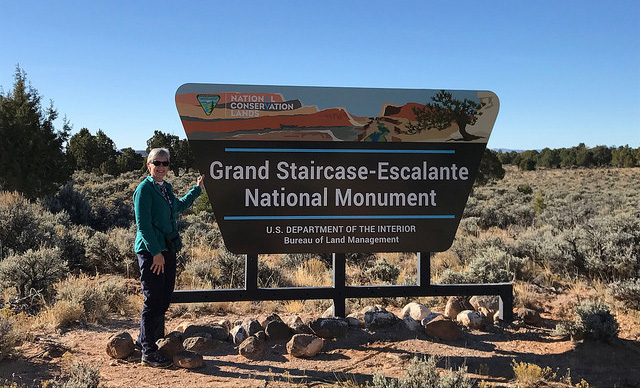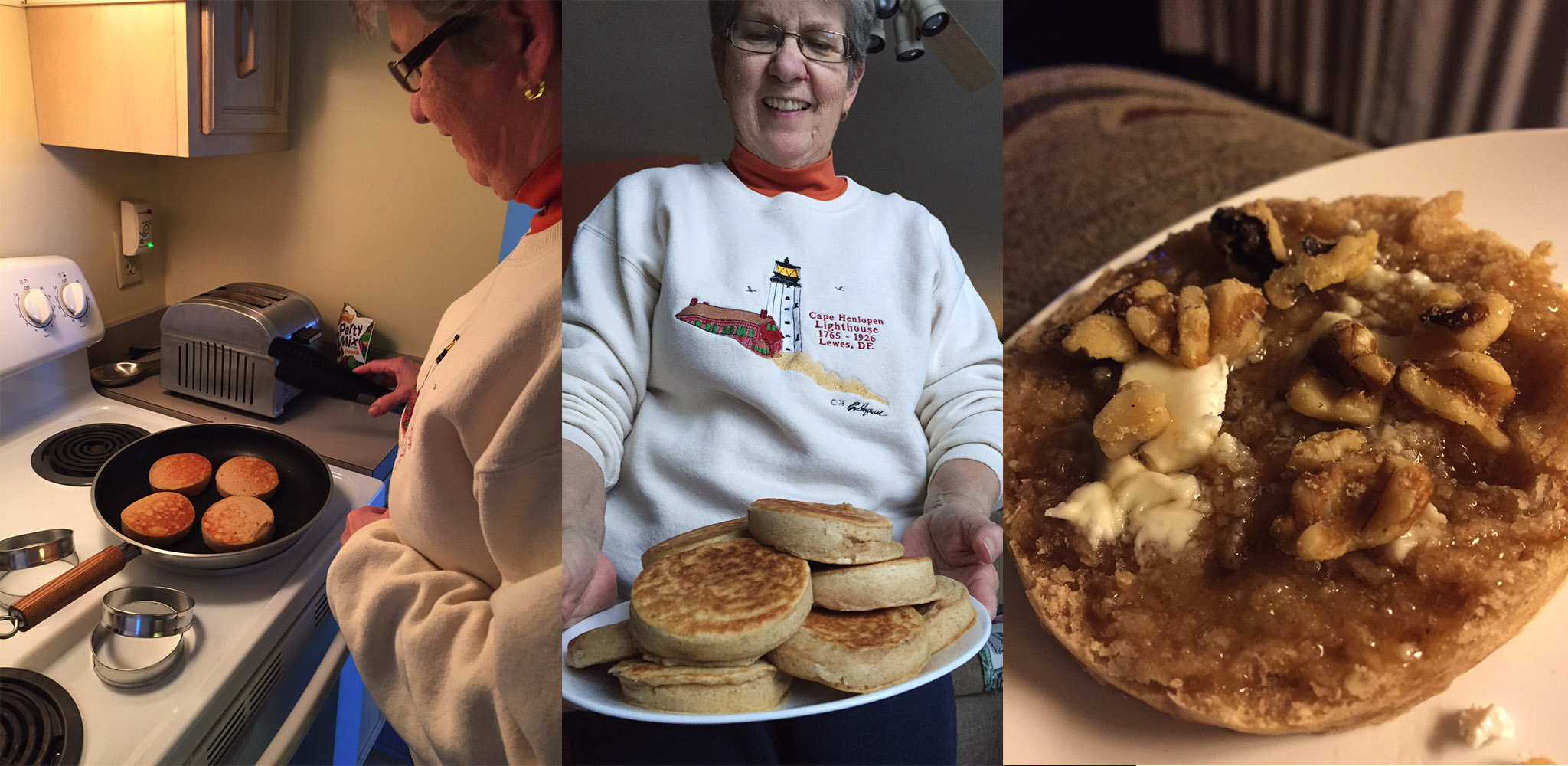The last time I saw my mom, she didn’t know who I was. I flew to Texas to visit her because the end was near, and she was more interested in watching “NCIS” than in chatting with her daughter during what I knew would be the final visit. In her nursing home room, there was a yellow sticky on a wall with the word “Delaware” written on it. Before she had totally forgotten who I was, she could remember where I lived.
So when I do things like take a wrong turn on my way to the airport – when all I had to do was keep driving straight ahead – and don’t realize it until a few miles have gone by, I worry. Sue worries. I have driven that route dozens of times. It was 5 a.m. and I was tired. Later that day, I drove all over Miami, an unfamiliar megalopolis, and did not get lost. Still, when I got home I rechecked the 10 Early Signs of Alzheimer’s. None of them describes my occasional brain fog. Brain fog, not an official medical condition, is nonetheless real and most likely due to my diagnosed sleep apnea.
Truth is, I have always been forgetful. Where are my keys? Where did I leave my credit card? What is the name of that person I was just introduced to five minutes ago?
Still, my brain is my principal asset. That is not bragging: I don’t cook very well, have very few maternal or care-giving instincts, and I am not crafty. I can’t tell a joke. My people skills are lacking.
But I can learn things. And that may be my greatest weapon against Alzheimer’s or some other form of dementia: I am a chronic learner. At 43, I received an MBA in Finance (I was a journalism undergrad so there was no overlap). At 57, I earned certificates in graphic and web design – driving 150 miles round trip to a night school in downtown Wilmington for three years.
At this moment, I am taking guitar lessons. I recently produced a video after watching a lengthy online tutorial about Final Cut Pro. I need to learn Google SketchUp for my business and want to teach myself to digitally paint photographs using Corel Painter. I signed up to learn Arabic online.
Keeping those gears turning
There is a method to my mania. Sudoku puzzles and classical music are not enough to keep an aging brain engaged. Learning something that is mentally challenging – such as digital photography or quilting – will improve cognitive function, according to findings published in Psychological Science in October 2013.
“It seems it is not enough just to get out and do something—it is important to get out and do something that is unfamiliar and mentally challenging, and that provides broad stimulation mentally and socially,” said psychological scientist and lead researcher Denise Park of the University of Texas at Dallas. “When you are inside your comfort zone you may be outside of the enhancement zone.”
New skills that require active engagement and tapped working memory, long-term memory and other high-level cognitive processes translated to more improvements in memory, the study found.
Several studies have linked learning a musical instrument, either during childhood or later in life, with reducing the risk of cognitive impairment and dementia.
“Musical activity throughout life may serve as a challenging cognitive exercise, making your brain fitter and more capable of accommodating the challenges of aging,” said Brenda Hanna-Pladdy, a neurologist at the Emory University School of Medicine and one of the researchers in the University of Kansas study.
Besides taking guitar lessons now, I have played the piano off and on since 3rd grade – at times, getting serious with competitions and recitals from which I still suffer an occasional post-traumatic episode. I have been meaning to get my piano tuned.
Likewise, being bilingual or learning a language late in life can delay the decline of important brain functions. Once again, I was once fluent enough in Spanish to spend six weeks studying it in Saltillo, Mexico, and took Russian all through college.
So on paper at least, I appear to be doing all the right things to stave off the onset of dementia. My purpose in writing this is my frustration with people my age, or even younger, who are not engaged in anything that would challenge their brain and memory functions. They shrug and say, “I’m too old to learn that” or they show contempt for social media and technology – which have opened up new worlds to me.
That muffled crinkling sound you hear may be your brain atrophying. Seriously, you don’t have to be a manic learner like me to challenge your brain, extend its cognitive lifespan, and savor the satisfaction of acquiring a new skill. Think of something that has always interested you – or even scared you away – and dive in.
And don’t give up at the first sign of difficulty. In the year I turn 60, I have finally formed a clean barre chord on my guitar – an accomplishment that has eluded me over several iterations of guitar lessons.






2 Comments
Kim hanna
January 28, 2016 at 11:15 amHi Lee Ann
I went to your presentation last night at MAL. I’m new to DE and was happy to find my way there. I plan on learning to blog because of you! Thank you. Kim
kairosdesign
January 28, 2016 at 3:17 pmHi Kim, Let me know if I can help you.